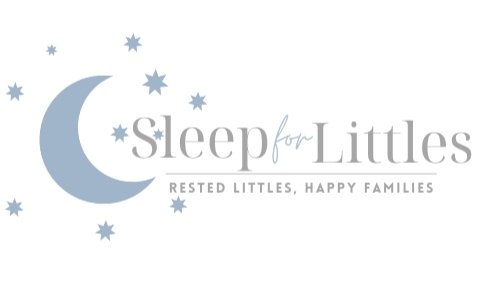How Do I get My Baby to Sleep? Everything You Need to Know About Gentle Sleep Teaching
In the early months of newborn life, it is normal for your little one to sleep 17-18 hours per 24 hours. Some babies will even sleep very long stretches at night. Don’t be fooled! Around the four month mark, your baby will likely experience their first sleep regression. This is caused by a progression of physical and cognitive skills. During this time, your baby will also begin to solidify their internal clock known as the Circadian Rhythm. They will begin experiences sleep cycles similar to those we experience and may awaken more frequently during the night as they transition from lighter sleep to deeper sleep.
Desperate times call for desperate measures. I’ve been there! However, be cautious with introducing middle of the night feedings, rocking or feeding TO sleep during this time. I’ve seen many parents, desperate for sleep, who introduce new habits into their night time routine, only to then have to break their child of the habit later on.
Here’s why.
Imagine that you fell asleep soundly in your bed. You wake up hours later only to realize you aren’t in your bed anymore, you’re in your car. You’d likely scream, cry, and freak out a little bit.
This is exactly what happens to our babies when they fall asleep after being rocked to sleep in our arms, but they wake up in their crib. They will look for whatever originally put them to put them back to sleep when they wake. The best way to help your baby is to teach them the skills they need to fall asleep without relying on any sleep props.
Parenting is hard. Sleeping shouldn’t have to be. If you’re struggling through working with a pediatric sleep consultant can help you and your baby get the sleep you both need and deserve.
What Is Sleep Training?
Sleep Training (also known as Sleep Coaching or Sleep Teaching) is the gentle process of teaching your little one the sleep skills they need to put themselves to sleep and stay asleep throughout the night. The process of sleep training is based off of scientifically proven, developmentally appropriate methods. There are many methods that can be used to sleep train. You can read more about the various methods in my blog post titled: “Sleep Training: Which Method is Right for My Little?”
What Is The Ideal Age to Begin Sleep Training?
There is no right age to sleep train. Every baby is able to be sleep trained, regardless of age. However, babies between four to six months of age tend to respond to sleep training quicker and with less crying than older babies.
Around four months, your baby will begin to develop his or her sleep cycle. This means they will go through phases of sleep similar to ours (light sleep – deep sleep –REM sleep). Babies around this age tend to have difficulty connecting sleep cycles which often causes a disruption in night sleep. If you’ve had a great sleeper up until this point and are experiencing difficulty getting your baby to sleep through the night, reach out to one of our expert sleep consultants to discuss if there is an in-home sleep trainer near you!
Benefits of Sleep Training
Sleep training has many benefits. According to research, consolidated night sleep has positive effects on the entire family. These are just some of the changes you might notice after sleep training:
An increase in marital satisfaction.
An improvement in mood in both baby and parents
Development of new physical skills.
Furthers brain development and cognitive skills.
Will There Be Crying When Sleep Training?
There is no way to tell how much or how little a baby will cry during sleep training. However, there are a few things you can do to lay the foundation for healthy sleep before sleep training.
Encourage Your Baby to Self-Settle
Provide your baby with opportunities to settle themselves to sleep. If you hear your baby beginning to fuss, follow a wait and listen approach. Allow your baby a few seconds to put him/herself back to sleep.
Implement A Bedtime Routine
Consistency is key. Following a simple bedtime routine serves as a cue to your little one that it is time for his or her longest stretch of sleep. A Sample bedtime routine might look like: bath, pajamas, book, bed, lights out.
Plan Ahead for Rough Nights.
Baby sleep in not a linear process. It is likely that your baby will even have some rough nights even after sleep training. Be sure to plan ahead for those nights and try not to re-introduce sleep props (like feeding to sleep) that may become a habit that needs to be broken later on.
Choosing a method to Sleep Train your child can be overwhelming. If you’re looking for professional guidance to help you find out what will work best for you and your family, schedule your free consultation with one of our experienced sleep trainers based out of Long Island, New York.
